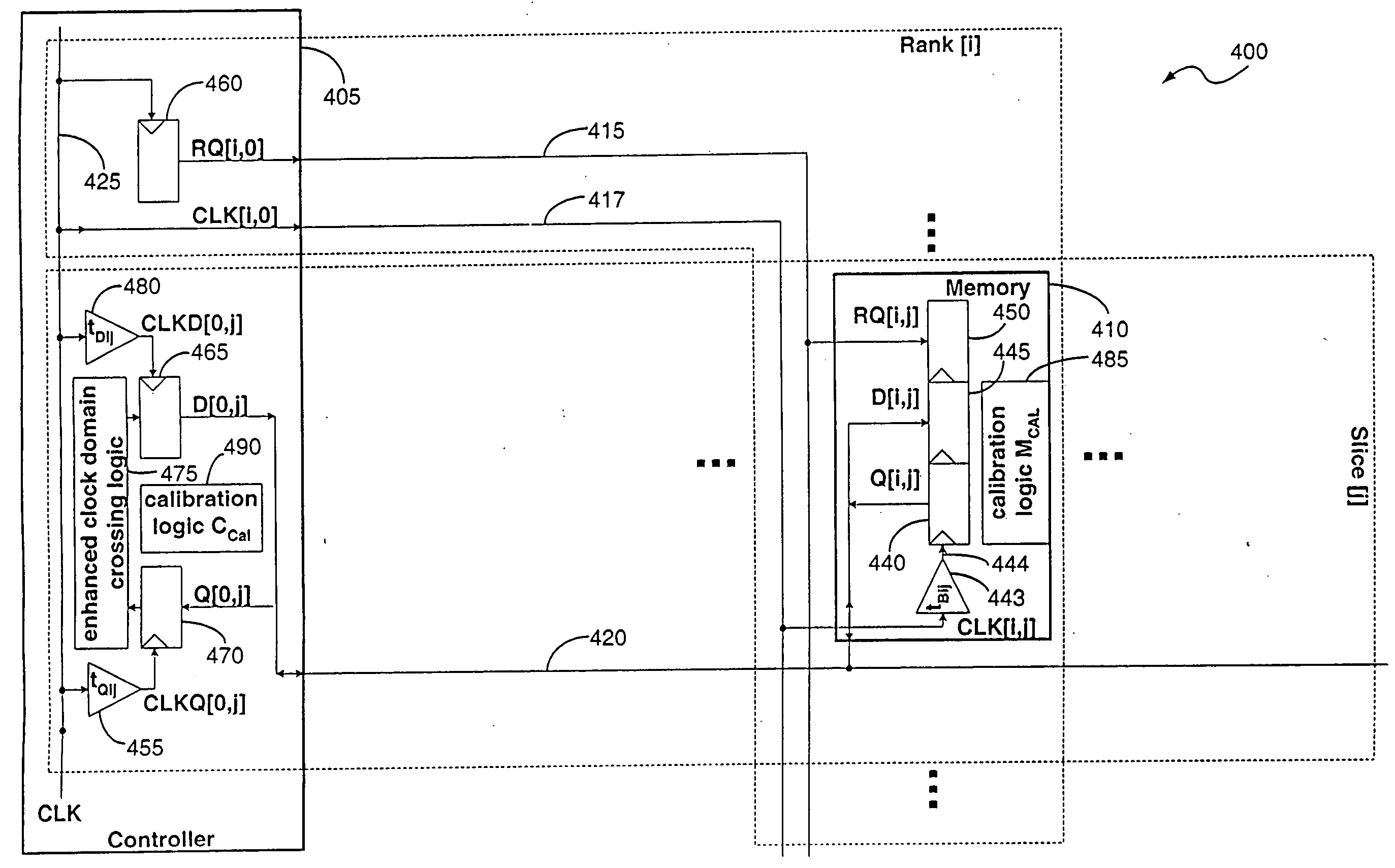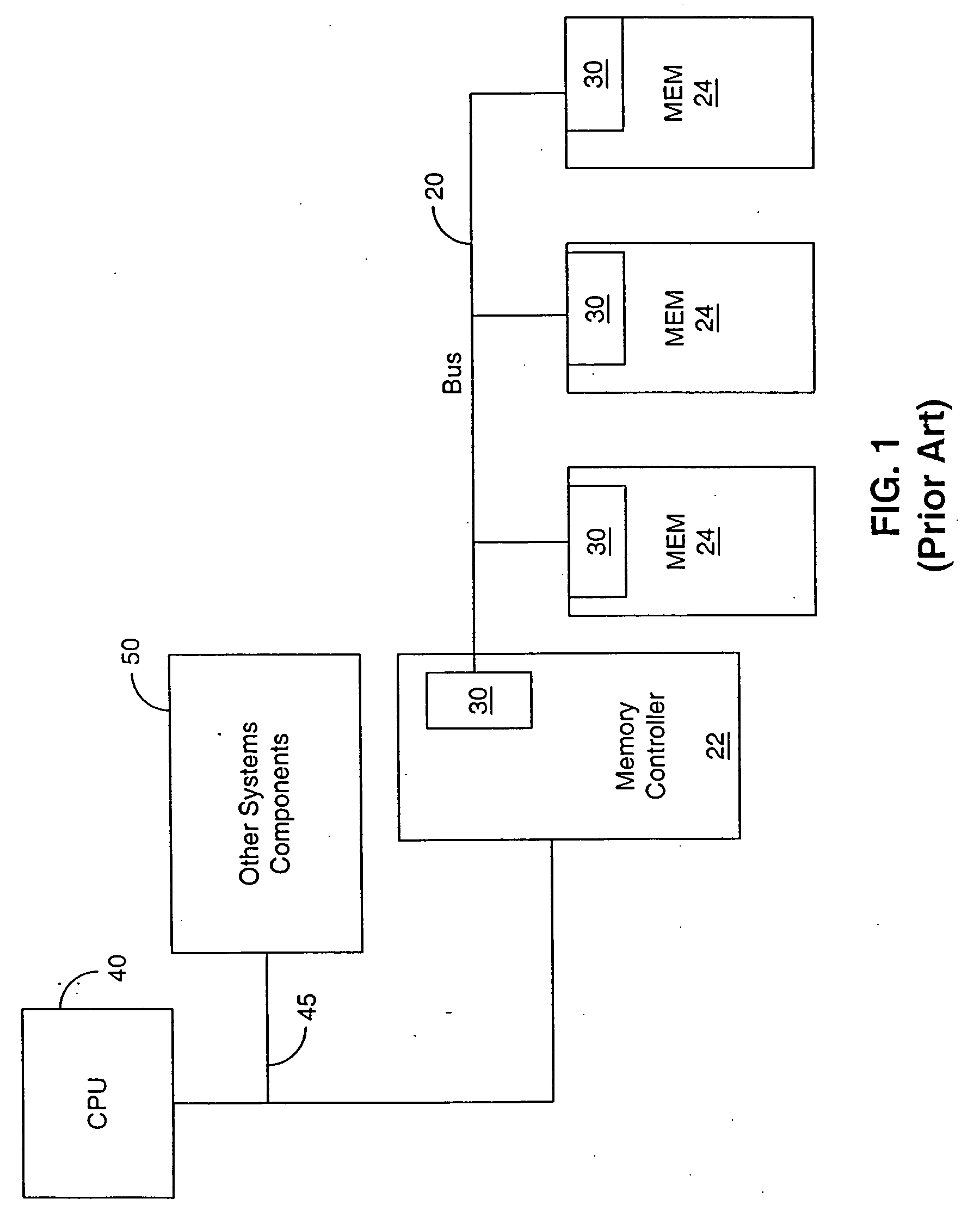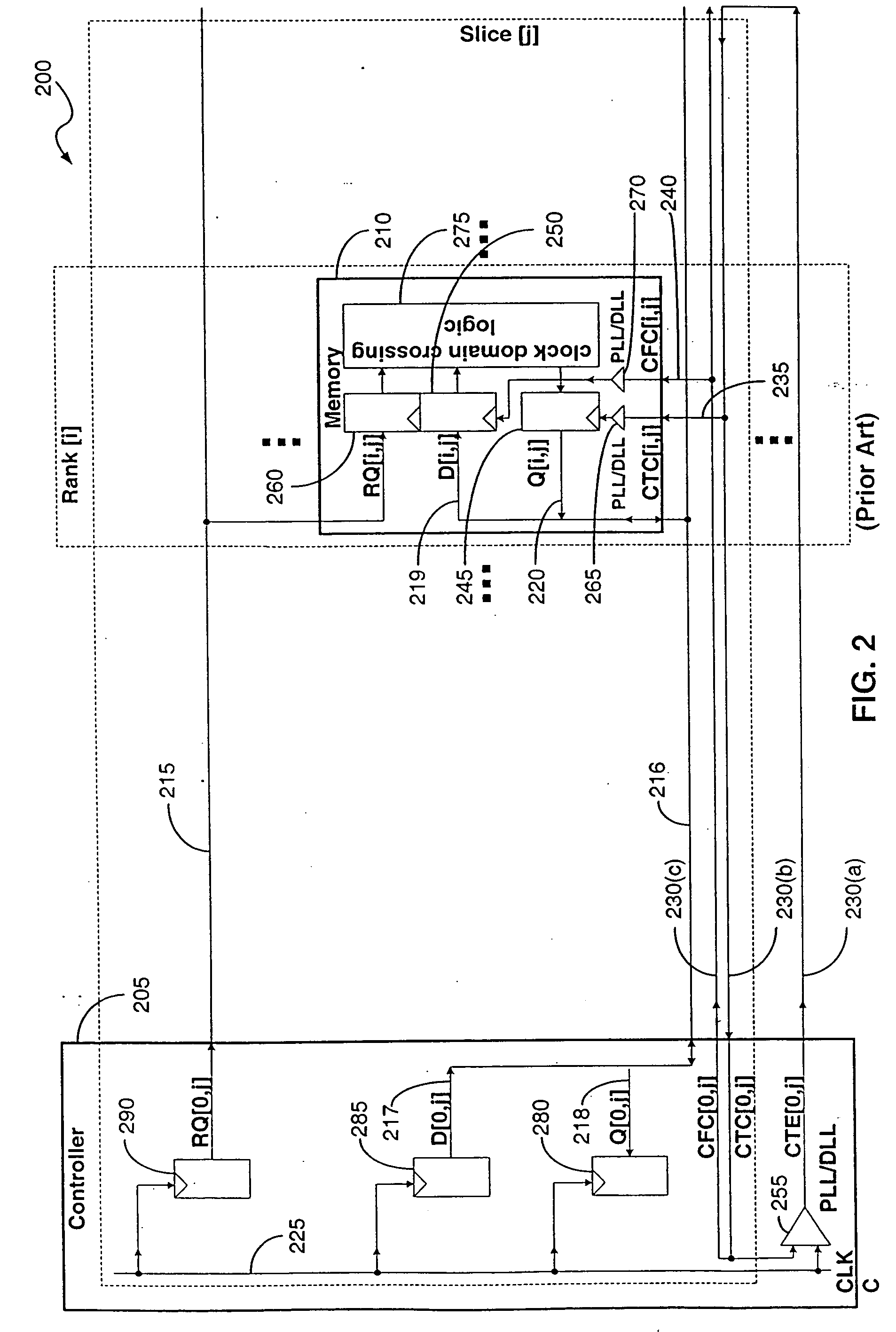Memory device signaling system and method with independent timing calibration for parallel signal paths
a memory device and signaling system technology, applied in the field of digital circuits, can solve problems such as complex digital circuits, signal propagation delays, and signals that may be transmitted with a relatively short delay
- Summary
- Abstract
- Description
- Claims
- Application Information
AI Technical Summary
Benefits of technology
Problems solved by technology
Method used
Image
Examples
Embodiment Construction
[0060] The term “mesochronous” refers to a relationship between two signals having the same average rate or frequency, but which may have arbitrarily different phases. The term “mesochronous system” refers to a set of clocked components in which the clock signal for each clocked component has the same frequency, but can have a relative phase offset. The term “static mesochronous system” means that the relative phase offsets are fixed and do not vary during normal system operation. The approach of using fixed relative phase offsets that do not vary during normal system operation has been the method practiced in prior art systems. The present invention is directed to “dynamic mesochronous systems” in which the phase offsets of the clocked components are allowed to drift over some range during system operation. The term “normal system operation” is used in this document to refer to ordinary memory access operations, such as read, write and refresh operations. Calibration operations, wh...
PUM
 Login to View More
Login to View More Abstract
Description
Claims
Application Information
 Login to View More
Login to View More - R&D
- Intellectual Property
- Life Sciences
- Materials
- Tech Scout
- Unparalleled Data Quality
- Higher Quality Content
- 60% Fewer Hallucinations
Browse by: Latest US Patents, China's latest patents, Technical Efficacy Thesaurus, Application Domain, Technology Topic, Popular Technical Reports.
© 2025 PatSnap. All rights reserved.Legal|Privacy policy|Modern Slavery Act Transparency Statement|Sitemap|About US| Contact US: help@patsnap.com



